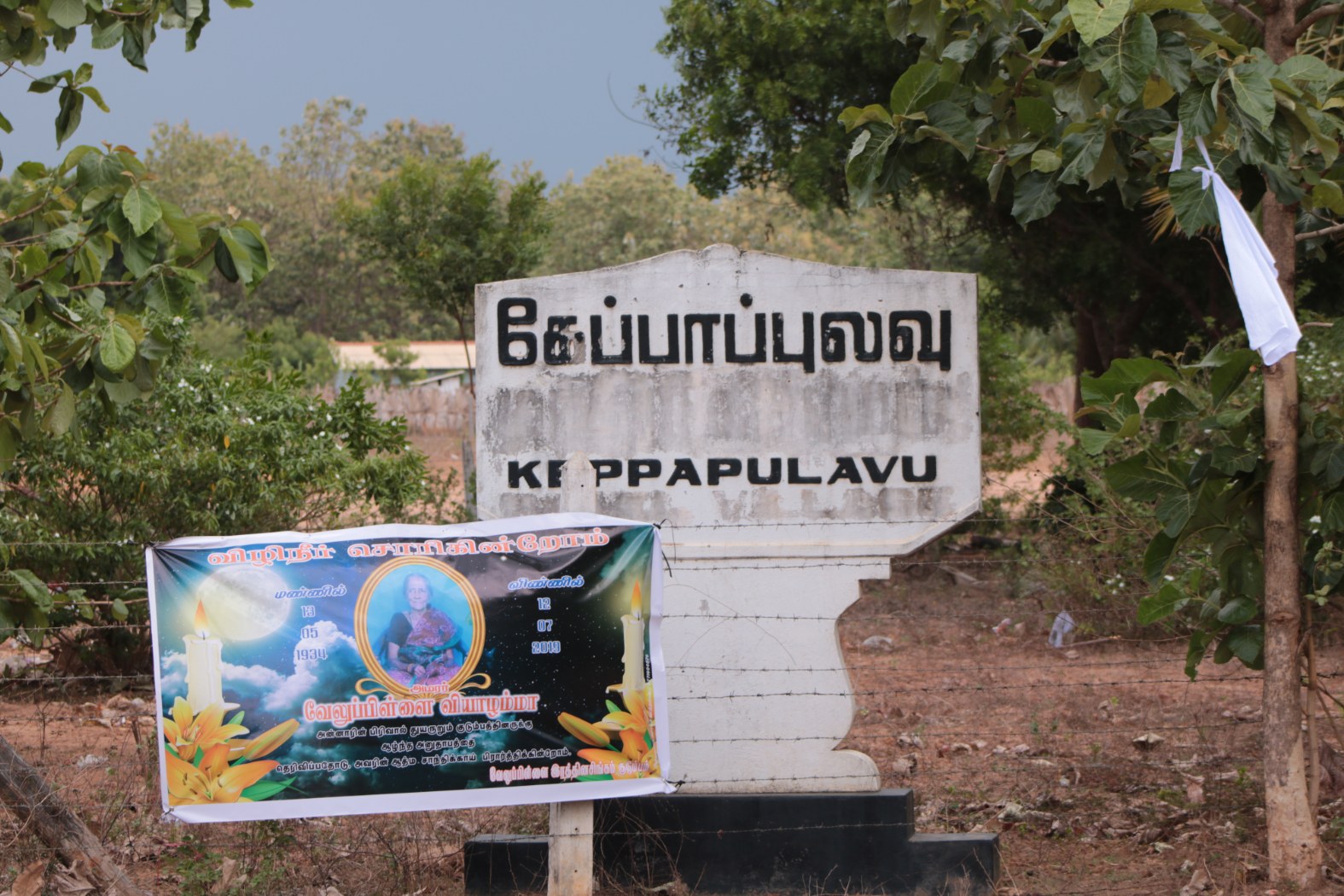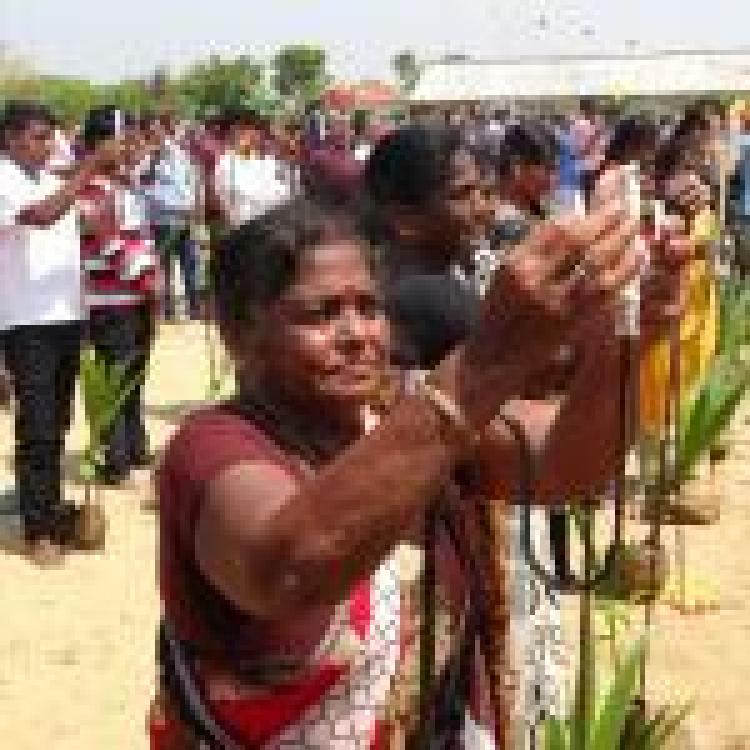Twenty-nine years ago, Vellupillai Viyazhamma’s son, V. Ranjan, was forcibly disappeared. Viyazhamma appeared before multiple commissions and inquiries over the years, refreshing her trauma each time in a desperate attempt to find answers to her endless question — what happened to my son? Last week, Viyazhamma passed away in Keppapilavu. At least twenty-one mothers, including Viyazhamma, have died in their pursuit to learn the truth about their disappeared loved ones.
Earlier this month, the Sri Lankan military claimed it did not receive any surrendering Tamil fighters during the final stages of the armed conflict. In this gross obfuscation of the truth, the military directly contradicted its own past statements, as well as reports released by the OHCHR Investigation on Sri Lanka (OISL) and various human rights organizations. Furthermore, it distorted the testimonials of numerous eyewitnesses who observed the army’s detailed documentation of Tamil fighters who surrendered at the end of the war.
The ease with which the Sri Lankan military can release false claims despite overwhelming evidence stating otherwise is indicative of a larger reality — guaranteed impunity for its crimes. In this reality, truth, evidence, and memory are extricated from justice. This was made appallingly apparent in the acquittal of the 13 Sri Lankan security forces suspected of executing five Tamil youth, later coined the Trinco 5. In this high-profile case, photographic evidence of gunshot wounds, and later, confirmation of the murder by Basil Rajapaksa, the brother and adviser of then-President Mahinda Rajapaksa, proved meaningless in a case dismissed for insubstantial evidence. In 2018, the UN High Commissioner for Human Rights even deemed the Trinco 5 case “emblematic” of the state’s failure to ensure its own accountability.
It is therefore imperative that there is an independent investigative mechanism to collect, consolidate, preserve, and analyze evidence for criminal justice purposes. As victim-survivors grow older and the destruction of evidence continues, the prospects for accountability for atrocities weaken. Ten years after the end of the 26-year-long armed conflict, not a single known perpetrator of war crimes, crimes against humanity, and/or genocide has been held accountable. It is no coincidence that violent persecution against ethnic minorities prevails on the island.
Poster paying tribute to the late Veluppillai Viyazhamma
International attention and civil litigation are already posing promising effects in holding Sri Lanka’s war criminals accountable. In the last month, 10 more charges of torture and sexual violence were added to a lawsuit against presidential-hopeful Gotabaya Rajapaksa in a U.S. district court. They detail horrific instances of violence, including being branded with hot metal rods, whipped with cables, asphyxiated by plastic bags soaked in petrol, and in six cases, repeated rape and sexual torture.
In addition, we are seeing unprecedented levels of political recognition of genocide in Tamil diaspora centres. On June 19, the Canadian House of Commons unanimously passed a motion calling for the UN to independently investigate allegations of genocide committed against the Tamil people. Earlier this year, the cities of Brampton and Toronto officially declared May 18 “Tamil Genocide Remembrance Day.” And in the UK, opposition leaders committed to the pursuit of justice, accountability, and Tamil self-determination.
This progress, however, follows a decade of international complicity in Sri Lanka’s genocide. Tamils have not forgotten that during the height of the conflict, the UN repeatedly dismissed Tamil-provided casualties and later concluded that such blatant violations of international human rights law and international humanitarian law resulted in part from the UN’s own grave “systemic failure.” Today, members of the international community continue to fail the Tamil people by rewarding the Sri Lankan state’s lack of progress with a substantial increase in positive engagement and bilateral support despite the absence of confidence-building results on “emblematic” cases. The UN’s extended permissiveness and blind faith in Sri Lanka’s political will to prosecute war criminals are not only deeply insulting to Tamil victim-survivors, but also threatening to their survival.
At this time, given modest international alignment with Tamil perspectives, it is critical to strive for accountability. PEARL’s petition calling on members of the international community to recognize the Tamil genocide and to establish alternative paths to justice will be closing at the end of this month. It is available in six languages: English, Tamil, French, Spanish, German, and Danish. Please sign and share widely.
A. Sivanandan famously wrote, “when memory dies a people die.” As a people who live in the war’s aftermath and continued genocide of Tamils in Sri Lanka, it is upon us to seek justice and preserve the memory of those like Viyazamma and the mothers before her.
Brannavy Jeyasundaram is Operations Officer at PEARL, a non-profit organization that advocates for justice and self-determination for the Tamil people in the North-East of Sri Lanka.



